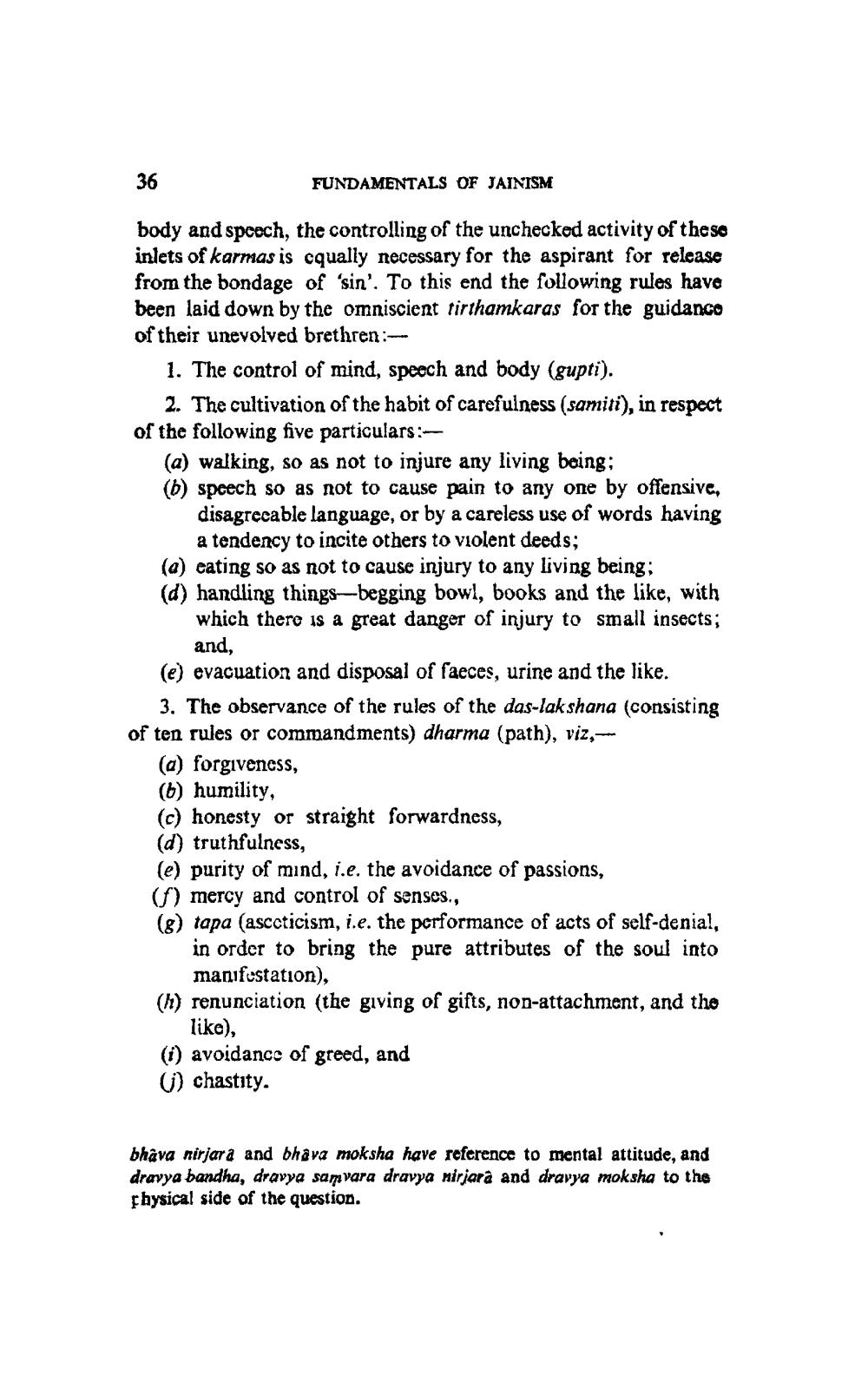________________
3366
FUNDAMENTALS OF JAINISM
body and speech, the controlling of the unchecked activity of these inlets of karmas is cqually necessary for the aspirant for release from the bondage of 'sin'. To this end the following rules have been laid down by the omniscient tirthamkaras for the guidance of their unevolved brethren:
1. The control of mind, speech and body (gupti).
2. The cultivation of the habit of carefulness (samiti), in respect of the following five particulars:
(a) walking, so as not to injure any living being;
(b) speech so as not to cause pain to any one by offensive, disagreeable language, or by a careless use of words having a tendency to incite others to violent deeds;
(a) eating so as not to cause injury to any living being; (d) handling things-begging bowl, books and the like, with which there is a great danger of injury to small insects; and,
(e) evacuation and disposal of faeces, urine and the like.
3. The observance of the rules of the das-lakshana (consisting
of ten rules or commandments) dharma (path), viz,
(a) forgiveness,
(b) humility,
(c) honesty or straight forwardness,
(d) truthfulness,
(e) purity of mind, i.e. the avoidance of passions,
(f) mercy and control of senses.,
(g) tapa (asceticism, i.e. the performance of acts of self-denial, in order to bring the pure attributes of the soul into manifestation),
(h) renunciation (the giving of gifts, non-attachment, and the like),
(i) avoidance of greed, and (j) chastity.
bhava nirjara and bhava moksha have reference to mental attitude, and dravya bandha, dravya samvara dravya nirjarà and dravya moksha to the physical side of the question.




